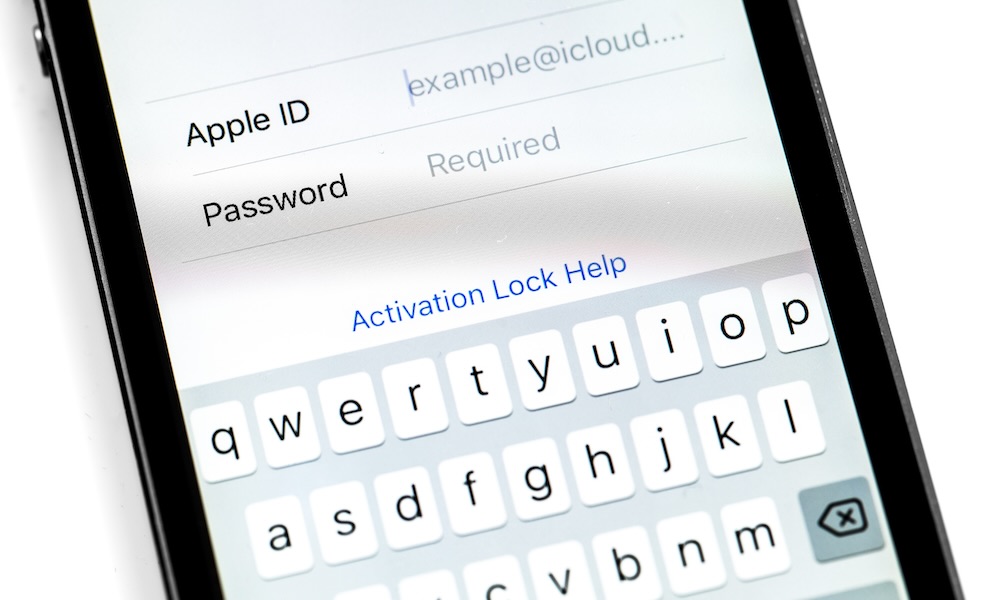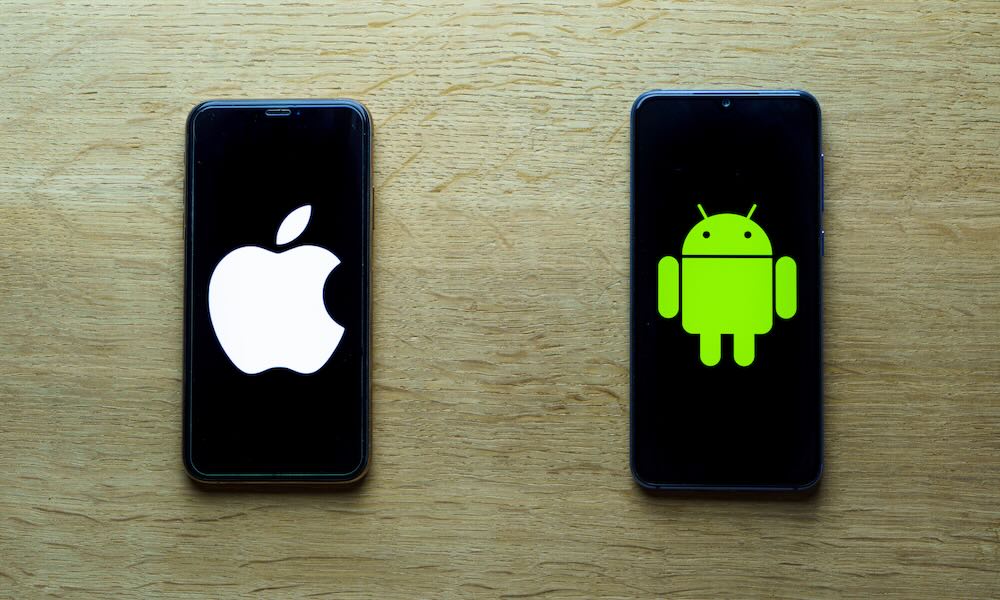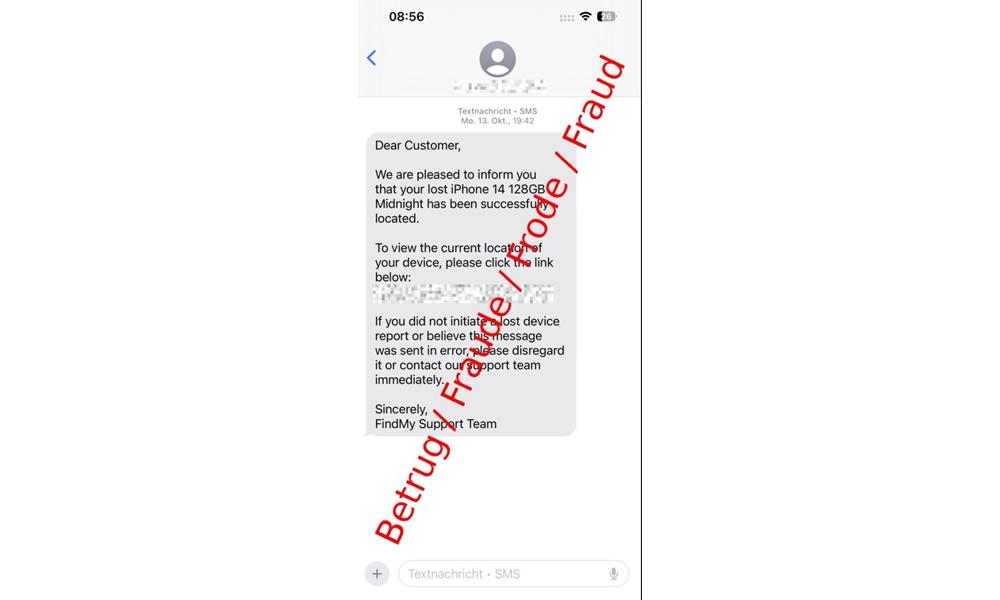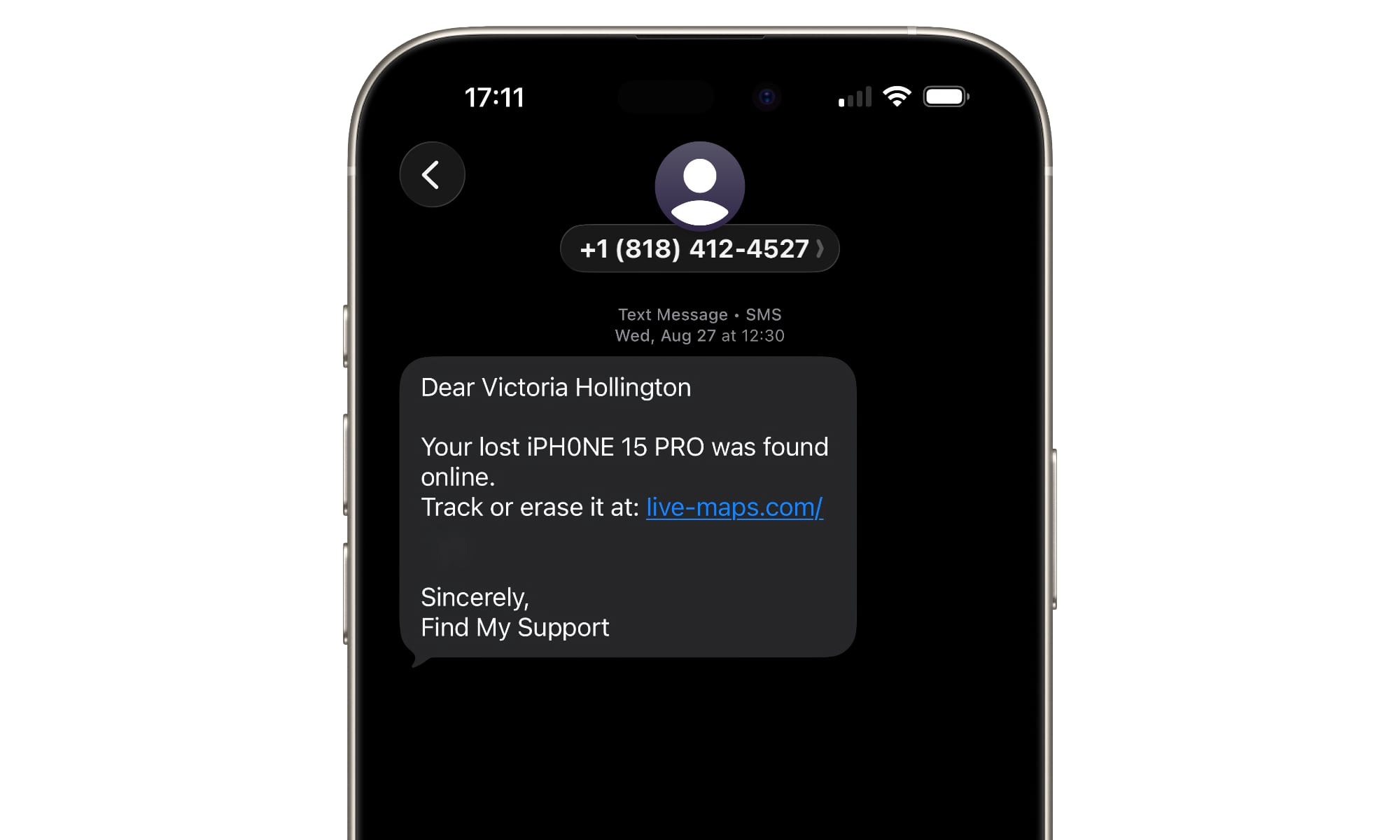A Growing Scam Is Using Fake Recovery Messages to Trick iPhone Owners
 prima91 / Adobe Stock
prima91 / Adobe Stock
Toggle Dark Mode
It’s been an exciting year for Apple, its users, and investors. From Tim Cook’s skilled navigation of complex new tariff regulations and swift supply chain diversification to the release of the popular iPhone 17 and the achievement of record-breaking profits, Apple continues to deliver customer satisfaction and investor confidence.
Still, amid all this exciting news, users should remember that digital threats continue to lurk. Hackers and scammers are innovative, too. Sometimes, they’re a step ahead. While Apple constantly advances privacy and security measures, users have a responsibility to be on the lookout for the deceitful tactics commonly deployed by cyber thieves. Don’t rely solely on your iPhone to keep you safe: your Apple device is merely the front gate — you’re the last line of defense.
Google recently claimed its Android phones offer better protection against scammers than iOS. Google and YouGov conducted a survey of 5,000 smartphone owners in the US, India, and Brazil. The results revealed that Android users were 58% more likely to report not having received any scam texts in the week prior to the survey. On the other hand, iOS users were 65% more likely to report three or more shady messages. While the sample size is relatively small and self-reported, the results serve as a useful reminder for iPhone owners to remain vigilant for malicious calls, texts, and emails.
After all, regardless of the platform you use, social engineering remains the most common method scammers employ to gain access.
Recently, the National Cyber Security Centre (NCSC), a UK government organization that supports the public and private sectors against online security threats, issued a warning to iPhone users about a new scam involving duping people into handing over their Apple ID credentials.
Scammers are now using London’s horrific smartphone theft statistics against iPhone owners who’ve had their device lost or stolen. Scammers are sending convincingly crafted messages, preying on a victim’s hope of recovering their phone. According to the NCSC, messages are sent by hackers,
…claiming that the lost iPhone has been found abroad. To make the messages look convincing, they include accurate details of the missing device – such as its model, colour and storage capacity – which the scammers can read directly from the phone itself. The message contains a link that supposedly shows the device’s location, but it actually leads to a fake website designed to look like Apple’s official login page. If you enter your Apple ID and password on this fake website, you are giving the scammers full control of your account.
The scam’s goal is to bypass the iPhone’s Activation Lock to access personal information or make the iPhone sellable. Apple’s Find My feature includes a Lost Mode that lets owners display a message with contact details on the lock screen. Unfortunately, scammers can exploit this by using the provided information — or data pulled from the SIM card — to target victims.
With this information in hand, hackers are going phishing.
The link will redirect recipients to a website looking nearly identical to Apple’s, with a prompt for the user to sign in to their Apple account.
Don’t be surprised if these messages become somewhat persistent, or even if the scammers switch to more persuasive tactics, such as claiming they “found” your iPhone and your personal information is at risk.
One of our team members here at iDrop News went through a similar experience after his daughter’s iPhone 15 Pro was stolen in January and later resurfaced in Vietnam in March. Following a few anonymous messages early on, the thieves tried again with a series of more targeted messages in August, referring to her by name and even targeting other family members’ numbers — information that was likely gleaned by connecting the dots through social media data leaks on the dark web.
Emails showing attempts to bypass the Activation Lock confirmed the thieves had fully wiped the iPhone early on, but it remains a brick unless they can convince her to give up her Apple ID password or remove it from her Find My devices list.
Remember, Apple will never contact you by text or email to inform you that your lost device was recovered. Don’t provide sensitive information, such as your Apple Account login, to any website or include it in any email or message. If you receive a text, call, or email that doesn’t pass the smell test, trust your instincts and verify the information directly by contacting Apple or the company purportedly contacting you.
In a year defined by Apple’s progress, it’s worth remembering that the company’s best defense is still its users. Stay alert, stay informed, and help others do the same.











